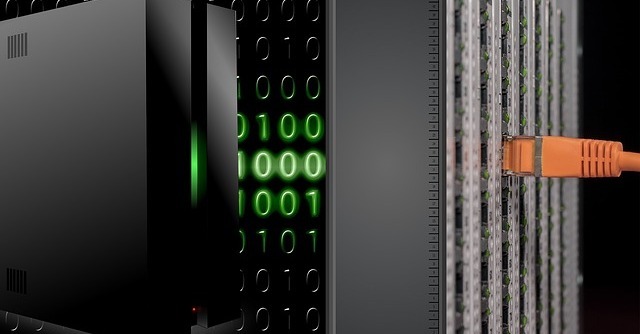
Equinix to invest $42 mn in its fourth data centre in Mumbai


The US-headquartered data center company, Equinix on Thursday said it is investing $42 million for the establishment of its fourth International Business Exchange (IBX) data centre in Mumbai, named MB4.
MB4 will offer an expanded array of connectivity options to major telecommunications networks and will include Metro Connect availability to Equinix's interconnected data center sites MB1 and MB2. The inaugural phase of MB4 is anticipated to roll out with a capacity of 350 cabinets. Upon full completion, the facility is projected to house up to 700 cabinets, the company said in a statement.
Equinix further said that the new data centre will be a cornerstone for local and international businesses looking to enhance their digital capabilities, fostering the rapid acceleration of digital transformation across various sectors in India.

According to a report published in May 2023 by Avendus Capital, the Indian data centre market is growing at a compound annual growth rate (CAGR) of around 40% and is expected to attract investments of about $5 billion by 2025. This growth is in line with the findings of the Equinix Global Tech Trends Survey 2023, published in June, which highlights that over 85% of CIO/CTOs surveyed in India are planning to amplify their spending on interconnection over the next year.
Manoj Paul, Managing Director at Equinix India, said, “The forthcoming availability of MB4, anticipated in the fourth quarter of 2023 pending regulatory approvals, positions us to effectively cater to our customers' needs in India. This will enable them to leverage our robust interconnection platform for seamless connectivity to multiple cloud service providers, network service providers, and other businesses, thereby expediting their digital transformation journey."
Equinix entered India through a $161 million acquisition of GPX India in September 2021, and has two interconnected data centres in Mumbai, MB1 and MB2.

In November 2021, Equinix announced the launch of global centre of excellence (CoE) in India for the development of innovative, automated and scalable digital technologies to improve the digital infrastructure resilience of customers and employees.
In March 2022, it revealed its plans to enter the Chennai market with an estimated investment of over Rs 1,000 crore ($125 million) in phases over the next 10 years. Subsequently, in June 2022, the company disclosed an investment exceeding $86 million to establish its third data centre in Mumbai, MB3.
These data centres offer access to prominent cloud service providers including Amazon Web Services, Google Cloud, and Oracle Cloud, as well as a diverse array of global networks, content delivery network providers, local carriers, more than 165 internet service providers (ISPs), and five internet exchanges, the company said.

Meanwhile, domestic infrastructure firms, from Adani Group to L&T to Hiranandani Group to global giants such as NTT, Google, Microsoft and Amazon, are all set to create greenfield data centres in the country or increase the capacity of their existing data centres.
According to the Avendus Capital report, over the last three years, the Indian data centre market grew by over 48 percent from 540 MW in 2019 to over 800 MW of installed capacity in 2022 as demand for digital transformation across businesses took off amidst the pandemic.
Among cities, Mumbai currently accounts for around 48% of the country’s total data centre capacity of 800 MW with use cases like submarine landing stations and reliable power capacity. Mumbai has a total capacity of about 380 MW, with another 530 MW under construction driven by cloud players aggressively absorbing space in the city.

This is followed by Bengaluru with 110 MW total capacity and 70 MW under construction. Most of the demand here is coming from the startups and ecommerce companies. Overall, seven cities contribute 92% of the total capacity in India. Delhi, Chennai, Hyderabad and Kolkata have the largest total data center capacity currently under construction, it said.
